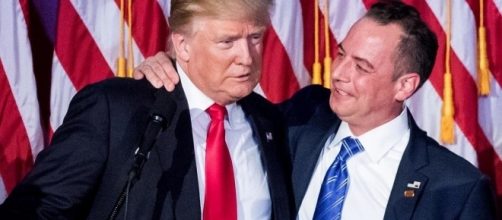Former RNC chair and current White House chief of staff Reince Priebus participated in a confrontational CBS interview over the weekend, warning reporters and journalists that they should 'take seriously' the president's allegations that the press are the 'enemy of the American people.'
Priebus was referring to President Trump's tweet from February 17, in which he called out television networks and major newspapers for being peddlers of fake news. Trump's tweet listed the most egregious offenders as ABC, CBS, NBC, CNN and the New York Times.
Priebus trashes Wall Street Journal, New York Times
During Priebus' interview with John Dickerson of CBS, which was taped Saturday, the White House chief of staff blasted the New York Times for its recycling of a months-old story about alleged contact between the Trump campaign and Russian intelligence officials, which was re-packaged after Michael Flynn's resignation to make it appear as if the former National Security Adviser had engaged in illegal activities.
While the New York Times story included a sentence admitting that no evidence of wrongdoing had been found, this statement was buried between paragraphs that had been lifted-- almost verbatim-- from a previously published New York Times piece.
During the CBS interview Priebus referred to the NYT story as 'bogus.'
Priebus also called out the Wall Street Journal for publishing a misleading story the following day, claiming that the intelligence community was not giving the president full intel briefings. "Both stories [are] grossly inaccurate, overstated, overblown, and it's total garbage," said Priebus.
Priebus offers advice to journalists
Priebus then warned the press to 'stop with this unnamed source stuff', adding that reporters need to put names on a piece of paper and print it.
Both stories mentioned by Priebus relied solely on anonymous sources. While this is a routine practice when it comes to reporting on matters of national security, Priebus believes that reporters are taking advantage of this privilege, and suggests that reporters should start getting their information straight from agency heads instead of 'leakers' who are opposed to the president's agenda.

